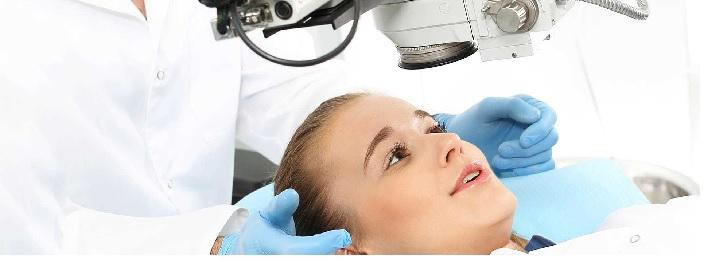Advancements in Laser Cataract Surgery: A Visionary Approach to Restoring Clarity
Cataracts, the clouding of the eye’s natural lens, are a common age-related condition that affects millions of people worldwide. The traditional approach to cataract surgery involved manually removing the clouded lens and replacing it with an artificial one. However, recent advancements in medical technology have revolutionized this procedure with the introduction of laser cataract surgery. In this article, we will explore the benefits and advancements of laser cataract surgery, highlighting how this visionary approach is restoring clarity to the lives of patients.
Understanding Laser Cataract Surgery
Laser cataract surgery utilizes a state-of-the-art femtosecond laser, which replaces or complements some of the traditional steps involved in the surgery. This advanced laser technology brings precision, accuracy, and enhanced safety to the procedure. The laser creates precise incisions in the cornea, fragments the cataract with high-energy pulses, and softens the lens, allowing for easier removal. This approach reduces the reliance on handheld surgical instruments, making the surgery more predictable and reproducible.
Enhanced Precision and Safety
One of the primary advantages of laser cataract surgery is its ability to enhance precision. The femtosecond laser enables surgeons to create perfectly sized and shaped incisions, which promotes faster healing and reduces the risk of complications. Moreover, the laser allows for a precise and controlled capsule opening, ensuring accurate placement of the intraocular lens (IOL), which is crucial for optimal visual outcomes. By eliminating the need for manual incisions, the risk of human error is minimized, resulting in enhanced safety for patients.
Customized Approach
Laser cataract surgery offers a customized approach tailored to the unique characteristics of each patient’s eye. Advanced imaging technology is integrated with the laser system to capture detailed 3D images of the eye, allowing surgeons to plan the surgery with utmost precision. This personalized planning ensures that the incisions are placed at the right depth and location, optimizing the effectiveness of the procedure and reducing the chances of post-operative complications. Furthermore, the laser can correct astigmatism by precisely reshaping the cornea, enabling better visual acuity without the need for additional procedures.
Faster Recovery and Improved Visual Outcomes
Compared to traditional cataract surgery, laser cataract surgery offers a faster recovery period. The precise incisions and reduced trauma to the eye enable quicker healing and a faster return to normal activities for patients. Additionally, the advanced laser technology allows for better lens positioning, resulting in improved visual outcomes. Many patients experience sharper vision and reduced dependency on glasses or contact lenses following laser cataract surgery.
Minimizing Complications
Laser cataract surgery has shown promise in reducing the risk of complications during and after the procedure. The accuracy of the laser incisions minimizes the chances of corneal swelling, inflammation, and infection. The femtosecond laser also helps to fragment the cataract into smaller pieces, reducing the amount of energy required for its removal. This gentle approach reduces the risk of damage to surrounding structures in the eye, such as the cornea and the retina, further enhancing the safety profile of the surgery.
For More Info:-
laser cataract surgery in Somers
laser treatment for glaucoma in Somers
premium lens cataract surgery in Somers


